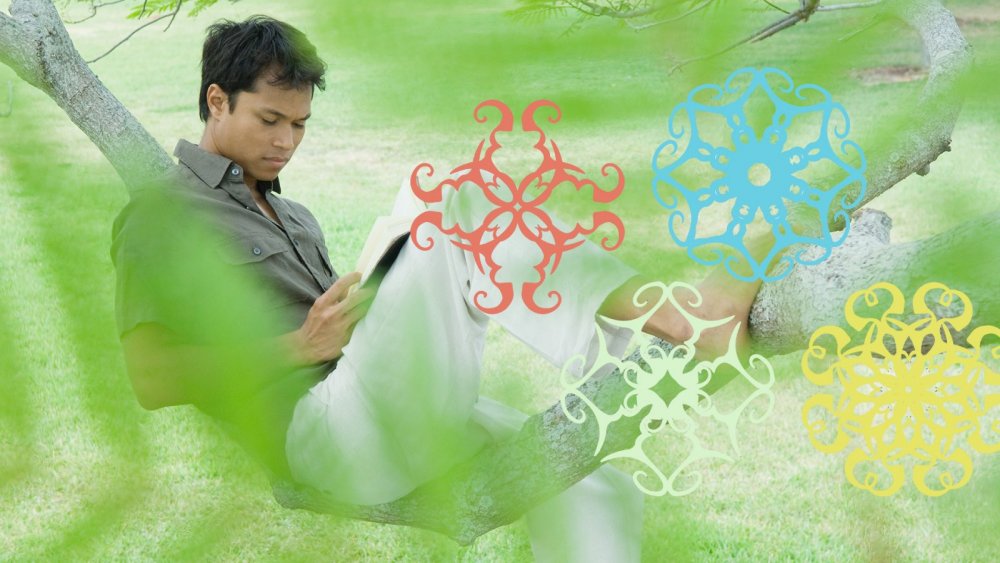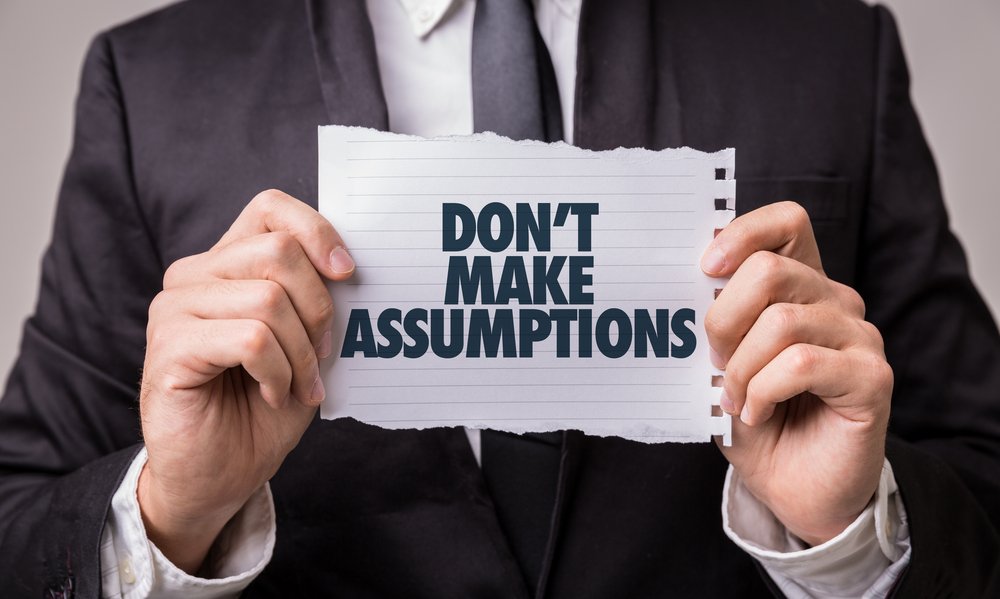What exactly are the Four Agreements? Arlo Laibowitz explores these ancient suggestions for ways of living your life in happiness...
Do self-help books help? This simple and provocative question is the title of an article by Ad Bergsma in the Journal of Happiness Studies. In this article, Bergsma studies the different types of psychological self-help books – such as The Four Agreements – and their possible positive effects.
When discussing the arguments of opponents of these books, he coins existing terms to describe them: ‘psychobabble’, ‘false hope syndrome’, and the problem of ‘one-size fits all’. Still, there are positive effects to be noted. One of them, according to researcher Steven Starker is this:
'Of what value is an inspirational message to those in need of health, beauty, happiness, success and creativity? In general, it lifts the spirit, engenders and supports hope, and keeps people striving towards their goals; it also fends off feelings of helplessness, hopelessness, despair and depression. This constitutes its greatest service.'
The Four Agreements is a self-help book by Mexican author Don Miguel Ruiz. It is, according to its author, a book based on ancient wisdom by the pre-Columbian Toltecs.
The historicity of the Toltecs is a matter of scholarly debate, but, according to Ruiz, they were a group of scientists and artists who came together to explore and conserve the spiritual knowledge of the “ancient ones”. When looking closer at the book's content, there are parallels with modern psychology and cognitive therapy, with spiritual and mindfulness teachings, and with general happiness practices that are being researched and supported by modern psychology.
What are the Four Agreements?
Esoteric psychobabble, valuable ancient wisdom, or borrowed ideas? Whatever the Four Agreements are, they have given me and many others hope and have fended off the despair that Starker speaks of. So, what are the Four Agreements exactly? And how can they help us to attain more happiness?
Four Agreements: summary
Put in their most basic form, the Four Agreements are:
1. Be impeccable with your word
Speak with integrity. Say only what you mean. Avoid using the word to speak against yourself or to gossip about others. Use the power of your word in the direction of truth and love.
2. Don’t take anything personally
Nothing others do is because of you. What others say and do is a projection of their own reality, their own dream. When you are immune to the opinions and actions of others, you won’t be the victim of needless suffering. This also includes the voices inside your mind.
3. Don’t make assumptions
Find the courage to ask questions and to express what you really want. Communicate with others as clearly as you can to avoid misunderstandings, sadness and drama.
4. Always do your best
Your best is going to change from moment to moment; it will be different when you are healthy as opposed to unwell. Under any circumstance, simply do your best, and you will avoid self-judgement, self-abuse and regret.
Sounds simple, right? No hocus-pocus or fancy spiritualism. However, when looking at the meat of The Four Agreements book, things get a bit more complicated, but also more interesting.
Toltec wisdom and The Dream of the World
The structure of The Four Agreements is like an oreo: the agreements are sandwiched in between spiritual guidance and thoughts. At the beginning of the book, Ruiz starts off with some Toltec mythology, and introducing the concept of “the dream of the world”: that is an important prerequisite to understanding the meaning of the agreements themselves.
The Toltec had their own mythology, that stated that a couple of thousands of years ago, a man studied to be a medicine man, and discovered that everything is made of light and that all existence is one living being.
“Whatever the Four Agreements are, they have given me and many others hope and fended off despair.”
One passage from the book reads as follows: "This is what he discovered: everything in existence is a manifestation of the one living being we call God. Everything is God. And he concluded that human perception is merely light perceiving light.
He also saw that matter is a mirror — everything is a mirror that reflects light and creates images of that light — and the world of illusion, the Dream, is just like smoke which doesn't allow us to see what we really are. […] Once he knew what he really was, he looked around at other humans and the rest of nature, and was amazed at what he saw. He saw himself in everything — in every human, in every animal, in every tree, in the water, in the rain, in the clouds, in the earth.”
When reading this passage for the first time, it might strike you as very similar to the Buddhist notion of the illusion of the separate self, known as Anatta. The teaching of the Self and Not-Self is instrumental in the path to happiness, as they are associated with processes of acceptance and letting go.
This is also very familiar to the philosophy of Alan Watts, especially The Book: On the Taboo Against Knowing Who You Are. In it, Watts argues very similar concepts of the illusion of the Ego, and the arguable truth that the Universe “peoples”: that we are extensions of the universe, reflecting on itself. Our path to happiness lies in embracing that reality, instead of clinging on to notions of the Ego and the Self that separate us from others and the world at large. A happier outlook on the world is recognising the connectedness we have to the world.
The Dream of the World
Next, Ruiz discusses what he calls the Dream of the World. Recognising that what we perceive as reality is but a dream, how is this dream made? Don Miguel Ruiz argues that truth is replaced in our world by symbols, words, which are only illusions.
As children, we believe what adults tell us about the world, and we start to dream with others in the world. Our dream tells us how to act in the world, what to believe and what not, what is acceptable behaviour and what isn't, what is right and what is wrong, what is good and what is bad.
We accept all of these notions because we make agreements with ourselves and the world. We create an inner Judge, and this Judge constantly judges and punishes us when we don’t live up to our self-created agreements. In this process, we create the Victim, who carries guilt, and gets punished over and over again.
This notion of the Judge and the Victim strongly resembles the ideas that Kristin Neff introduces in her method of Mindful Self Compassion, and especially in her article 'The Role of Self-Compassion in Development: A Healthier Way to Relate to Oneself'. She analyses the way we develop notions of self-judgement, and thereby neglect self-compassion. In our development, we create notions of self-esteem that are detrimental to us, for we cannot live up to our own standards. The answer to this self-judgement is self-compassion, a method to be more kind, more compassionate, towards ourselves.
RELATED: How to practise self-compassion – 6 proven techniques
Neff writes: "We know we are not what we believe we are supposed to be and so we feel false, frustrated, and dishonest. We try to hide ourselves, and we pretend to be what we are not. The result is that we feel unauthentic and wear social masks to keep others from noticing this. We are so afraid that somebody else will notice that we are not what we pretend to be.
“We judge others according to our image of perfection as well, and naturally, they fall short of our expectations. We dishonour ourselves just to please other people. We even harm our physical bodies just to be accepted by others. […] Therefore we live in a dream of hell, and we search for a way to transform this into a dream of heaven. To escape our dream of hell, we have to break old agreements, that are fear based, and reclaim our freedom and power. The four agreements help us breaking down all our old agreements.”
So, this is how all of this relates to the Four Agreements that Ruiz proposes afterwards. Because we create a divide between ourselves and the world, the Universe, and because we create the Judge/Victim dichotomy within ourself, we live in tension, we feel inauthentic and dishonest. We make toxic agreements with ourselves about ourselves, and about our relationships with others. The Four Agreements help us to replace these toxic agreements with newer, happier agreements.
The Four Agreements: the long version
1. Be impeccable with your word
"Be impeccable with your word. This is the first agreement that you should make if you want to be free if you want to be happy […] Use the word in the correct way. Use the word to share your love. Use white magic, beginning with yourself. Tell yourself how wonderful you are, how great you are. Tell yourself how much you love yourself. Use the word to break all those teeny, tiny agreements that make you suffer.”
The first agreement sounds simple. But, it encompasses a couple of different notions. Literally, impeccable means “without sin”. Don Miguel Ruiz invites us to be without sin in our words, as the first way to replace our old agreements with new ones. Both the words we utter to ourselves, and that words that we utter to others. If we love ourselves, we use kind words to ourselves, instead of committing the ’sin’ of going against yourself. We take responsibility for our actions, but we don’t judge or blame ourselves. If we love others, we don’t gossip or talk badly to or about them, but we share our common humanity.

The Four Agreements does not allow for gossiping shutterstock/rawpixel.com
This first agreement has strong connection to both ‘mindset’, as proposed by psychologist Carol Dweck, and with the fundamentals of Neuro-Linguistic Programming [NLP], as can be found in Brian Colbert's writings. The idea of mindset, and especially of ‘growth mindset’, states that we can develop and alter our abilities through dedication and work. NLP engages its practitioners in the power of language and how we use it internally, to impact how we view and experience ourselves and the world.
Call it impeccability with our word, ‘growth mindset’, or NLP. In any case, we can live happier lives if we use our words (for example with these NLP happiness techniques), both internally and to others, for good.
2. Don’t take anything personally
"During the period of our education, or our domestication, we learn to take everything personally. We think we are responsible for everything. Me, me, me, always me! Nothing other people do is because of you. It is because of them.”
Ruiz argues that everything that others say or do is because of their dream, not because of us. This goes for both criticism, but also for positive comments that others make about us. We don’t have to take any of that personally. When we stop taking things personally, we don’t get hurt anymore by others and can keep being impeccable with our word in our communication with them. Furthermore, he argues that we don’t even have to take ourselves, or the things we say to ourselves, personally.
"If you live without fear, if you love, there is no place for any of those emotions. If you don’t feel any of those emotions, it is logical that you will feel good. When you feel good, everything around you is good. When everything around you is great, everything makes you happy. You love everything that is around you because you love yourself. Because you like the way you are because you are content with you. Because you are happy with your life […] happy with your agreements with life.”
The notion of not taking anything personally, and finding communication that is non-confrontational to leave space for the other to live their ‘dream', resonates strongly with the idea of Non-Violent Communication [NVC]. Originally developed by Marshall Rosenberg, NVC focuses on three aspects of communication:
- self-empathy (deep and compassionate awareness of one's own experience)
- empathy (understanding of the heart in which we see the beauty in the other person)
- honest self-expression (expressing oneself authentically in a way that is likely to inspire compassion in others)
NVC proposes that if people can identify their needs, the needs of others, and the feelings that surround these needs, harmony can be achieved.
3. Don’t make assumptions
"We tend to make assumptions about everything. The problem with making assumptions is that we believe they are the truth. We could swear they are real. We make assumptions about what others are doing or thinking — we take it personally — then we blame them and react by sending emotional poison with our word.”
Don Miguel Ruiz argues that most of our suffering stems from our tendency to make assumptions. We find this notion as well in Cognitive Therapy, and especially in the research of Aaron Beck. Beck states that we have cognitive distortions, or thinking patterns, that interfere with how we perceive an event. These distortions can feed negative emotions and communication.
Don't assume anything shutterstock/Gustavo Frazao
One of these distortions is jumping to conclusions, or ‘mind reading', in which we infer other people’s thoughts. The solution to having these distortions, or making assumptions, is to ask questions, and making sure that communication is clear. Even then, don’t assume that you know everything about the situation.
"We also make assumptions about ourselves, and this creates a lot of inner conflicts. “I think I can do this.” You make this assumption, for instance, then you discover you aren't able to do it. You overestimate or underestimate yourself because you haven’t taken the time to ask yourself questions and to answer them. Perhaps you need to gather more facts about a particular situation. Or maybe you need to stop lying to yourself about what you truly want.”
As with not taking anything personally, Ruiz also invites us to examine the assumptions we make about ourselves. Only when we are mindful of the things we tell ourselves that are within or not within our capabilities, and when we stop making assumptions about what others mean, can we become happier.
4. Always do your best
“There is just one more agreement, but it’s the one that allows the other three to become deeply ingrained habits. The fourth agreement is about the action of the first three: Always do your best. Under any circumstance, always do your best, no more and no less. […] But keep in mind that your best is never going to be the same from one moment to the next. Everything is alive and changing all the time, so your best will sometimes be high quality, and other times it will not be as good.”
The fourth agreement seems very simple to make with ourselves, if we allow ourselves to stop judging, and don’t make assumptions about our capabilities. However, there is another element to this agreement, which according to Ruiz increases our happiness dramatically:
"Doing your best, you are going to live your life intensely. You are going to be productive; you are going to be good to yourself, because you will be giving yourself to your family, to your community, to everything. But it is the action that is going to make you feel intensely happy. When you always do your best, you take action. Doing your best is taking action because you love it, not because you’re expecting a reward.”
This action-based happiness, this appreciation for process over outcome, and the appreciation for doing our best, we find in the writings of psychologist and researcher Martin Seligman as well. In his book Flourish: A New Understanding of Happiness and Well-being, Seligman denies simplistic notions of happiness and suggests how people can flourish.
Seligman names the key elements to flourish as ‘PERMA'
- P – positive emotion
- E – your engagement
- R – relationships
- M – meaning
- A – sense of accomplishment
To flourish, you need to change how you behave in order to improve those key elements. You cannot flourish just by trying to think differently because positive thinking has to be accompanied by coherent behaviours, actions.
Taking this one step further, there are also parallels with the Ten Keys to Happier Living that Action for Happiness synthesised from happiness research.
Their GREAT DREAM constitutes of:
- Giving – do things for others
- Relating – connect with people
- Exercising – taking care of your body
- Appreciating – awareness of what you do and the world around you
- Trying Out – doing new things
- Direction – doing things towards a goal
- Resilience – bouncing back after something negative
- Emotion – being positive about what you do
- Acceptance - that we all have faults and that things go wrong
- Meaning – being part of something bigger
So, when we do our best, both in keeping the four agreements and in the actions we take in the world, we can truly be happy.
Living with the Four Agreements
The Four Agreements seem simple but have a world of inner transformation, spiritual growth, and action-based happiness at their core. When we try to live with the Agreements and learn from the world of thoughts and philosophies connected with them, step-by-step we can create more loving, more compassionate, more connected lives.
Ruiz’ message ultimately strongly resonates with the teachings by the Dalai Lama. As Ruiz states at the end of his book: “The world is very beautiful and very wonderful. Life can be easy when love is your way of life. You can be loving all the time. This is your choice. You may not have a reason to love, but you can love because to love makes you so happy. Love in action only produces happiness. Love will give you inner peace. It will change your perception of everything. […] Maybe we cannot escape from the destiny of the human, but we have a choice: to suffer our destiny or to enjoy our destiny. To suffer, or to love and be happy. To live in hell, or to live in heaven. My choice is to live in heaven. What is yours?” ●
Main image: Colourbox.com
Written by Arlo Laibowitz
 Arlo is a filmmaker, artist, lecturer, and intermittent practitioner of metta meditation and morning yoga. When not dreaming about impossible projects and making them happen in the most impractical ways possible, he journals, listens to jazz, or cuddles with his better half.
Arlo is a filmmaker, artist, lecturer, and intermittent practitioner of metta meditation and morning yoga. When not dreaming about impossible projects and making them happen in the most impractical ways possible, he journals, listens to jazz, or cuddles with his better half.



Join the conversation
You are posting as a guest. If you have an account, sign in now to post with your account.